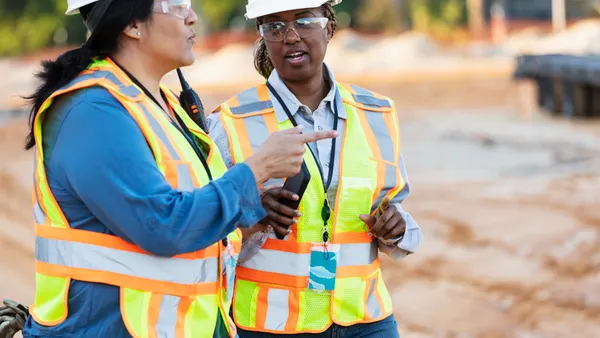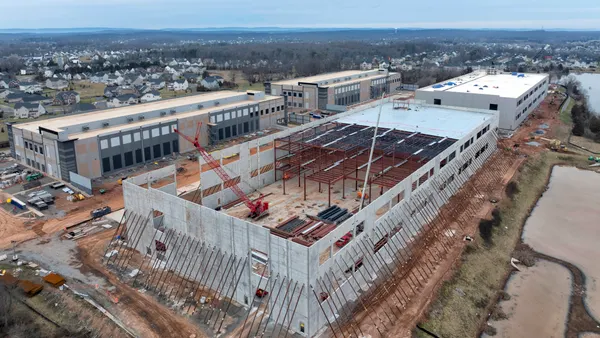Dive Brief:
- The Associated Builders and Contractors' Construction Confidence Index (CCI) for the first half of 2016 fell slightly from its April 2016 reading but still reflected overall growth, the group reported Thursday.
- Sales expectations slipped from 67.0 to 64.1 on the CCI, while profit margin predictions edged down from 62.8 to 61.1. However, the CCI reading for intended staffing levels increased one point from 63.9 to 64.9.
- The ABC said the latest CCI results point to a continued nonresidential construction recovery. The Index is a forward-looking measure of industry expectations, and readings greater than 50 indicate anticipated growth.
Dive Insight:
ABC Chief Economist Anirban Basu said in a release that negative factors such as a persistent skilled labor shortage and rising material costs have tempered the impact of the positives in the U.S. economy — including overall job growth, robust private investment, passage of last year's highway bill, higher wages and an uptick in consumer spending.
He noted that while some industry players are concerned about the outcome of the November presidential elections, there is more worry around the level of debt and negative interest rates seen in some global markets. However, Basu said these conditions should not affect short-term, nonresidential prospects.
The ABC's second-quarter Construction Backlog Indicator report also pointed to a healthy construction environment, even with the Northeastern region's 12.9% quarter-to-quarter drop to 7.13 months. The average backlog of nonresidential construction projects held strong at 8.5 months, but large contractors with $100 million or more in revenue scored big with a new backlog high of 14.06 months. Regionally, the South had the longest backlog at 10 months.
The American Institute of Architects also reported this month that its Billings Index (ABI), an indicator of future construction activity, was primarily positive for the first six months of 2016, despite a slight dip in August's reading to below 50. The AIA has cited uncertainty around the upcoming election as a primary reason that clients are holding off on making any big project commitments.










